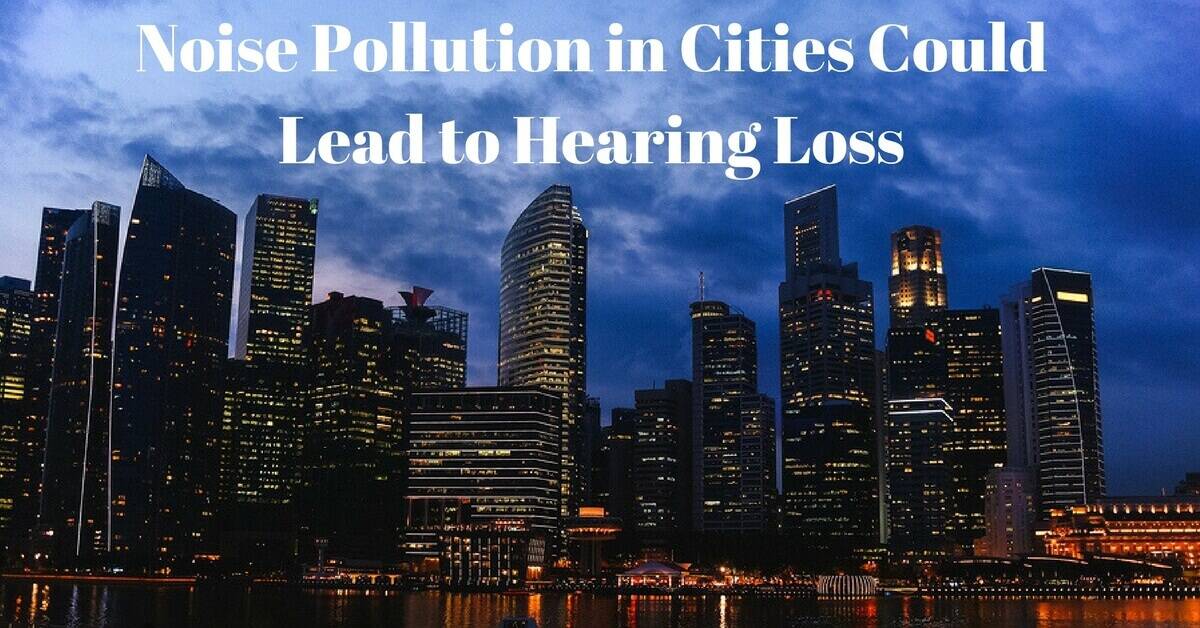
Have you ever wondered if the place you live is affecting your hearing? A recent study in The Lancet revealed that those living in cities have a high chance of developing hearing loss, and at younger ages. MedicalXpress reports that people living in major cities are 64% more likely to experience hearing loss! Unfortunately, most people are unaware of the noises in cities that cause hearing loss, and aren’t protecting their hearing.
What’s Damaging Your Hearing?
Sounds that damage hearing are abundant in cities. From traffic noise to road construction and music filling shopping malls and restaurants, loud noises are everywhere. The moment you wake up, your ears are assaulted with noises, like the siren that goes by your window, or honking from rush hour traffic. On the commute to work you hear the screeching bus breaks, the roar of the subway, and the sounds blasting into your ears from your earbuds. Friday nights out with friends and Saturday afternoons in the park are also filled with damaging sounds that chip away at your hearing every day.
Living in cities, you’re likely to experience hearing loss much sooner than those living in rural areas. A study by the Centers for Disease Control and Prevention found that adults living in cities had worse hearing than any other group. Hearing test scores for adults in cities had scores normally seen in someone 10 to 15 years older! A 50 year old in the city will have the level of hearing loss usually found in a 65 year old. City noise is aging your ears at an alarming rate.
Noise Induced Hearing Loss
Of the 37 million Americans with hearing loss, over 10 million have noise induced hearing loss (NIHL) from being exposed to dangerously loud noises. This number is tragically high, since NIHL is preventable using hearing protection. NIHL can be caused by a one-time exposure to an extremely loud noise, like a gunshot at close range, or standing next to an airplane about to take off. Sounds at this volume cause immediate damage to the fragile hair cells in the inner ear, making it impossible for sounds you hear to ever reach the brain for processing.
NIHL is more commonly caused by damage that occurs gradually over time, as your ears are exposed daily to dangerous sound levels. Living in the city is exactly that, as your ears are subjected to loud sounds day in and day out.
Let’s Talk About Decibels
So how loud is too loud? To answer that question, it’s time to look at decibel (dB) levels. Decibels measure the volume of sounds, and tell us whether sounds are within safe volumes or will damage our hearing. Once sounds reach 85dB or louder, they can cause permanent damage to your hearing. The longer you are exposed to these levels, the more damaged your hearing will become. If a sound is quiet, you can listen for hours without experiencing damage. But if a sound is loud, even a few seconds can damage your inner ear cells.
A normal conversation is usually around 60dB, which will not jeopardize your hearing. Heavy traffic is around 85dB, which could cause damage after an hour or two. Music through earbuds is often around 100dB, and this will could lead to hearing damage after just a few minutes. Finally, a concert hall, sports venue, or sirens a few feet away are often between 130-140dB! That’s enough to permanently change your hearing after a few seconds.
Protecting Your Hearing
Think about the sounds you are exposed to every day. Are any of them louder than 85dB? If the answer is yes, then you need to take steps to protect your hearing. Turn down the volume on your personal music, and consider about wearing hearing protection on your way to work. If it’s your turn to pick the restaurant for your family dinner, find a quiet place without loud music. At concerts or sporting events, make sure you always have earplugs! These events are so loud that even a couple hours will cause severe and permanent damage to your hearing, putting your hearing health at risk.
If you are living in a noisy city or think you have hearing loss, come visit us at one of our My Hearing Centers locations for a hearing test. We’ll determine your level of hearing loss, give you tips to safeguard your hearing, and work with you to find the hearing solution that matches your needs.
